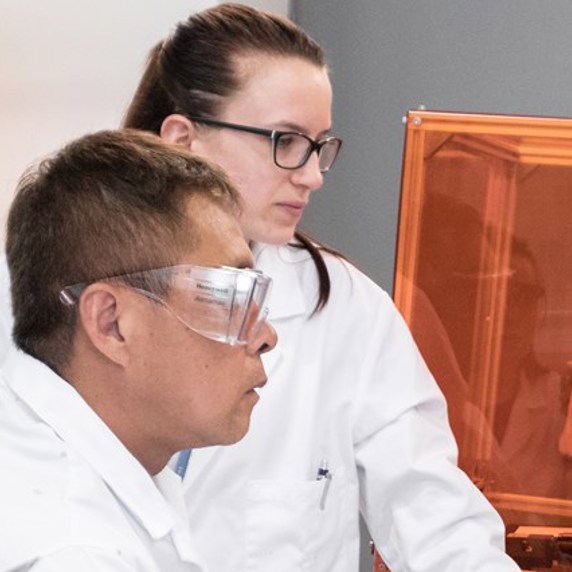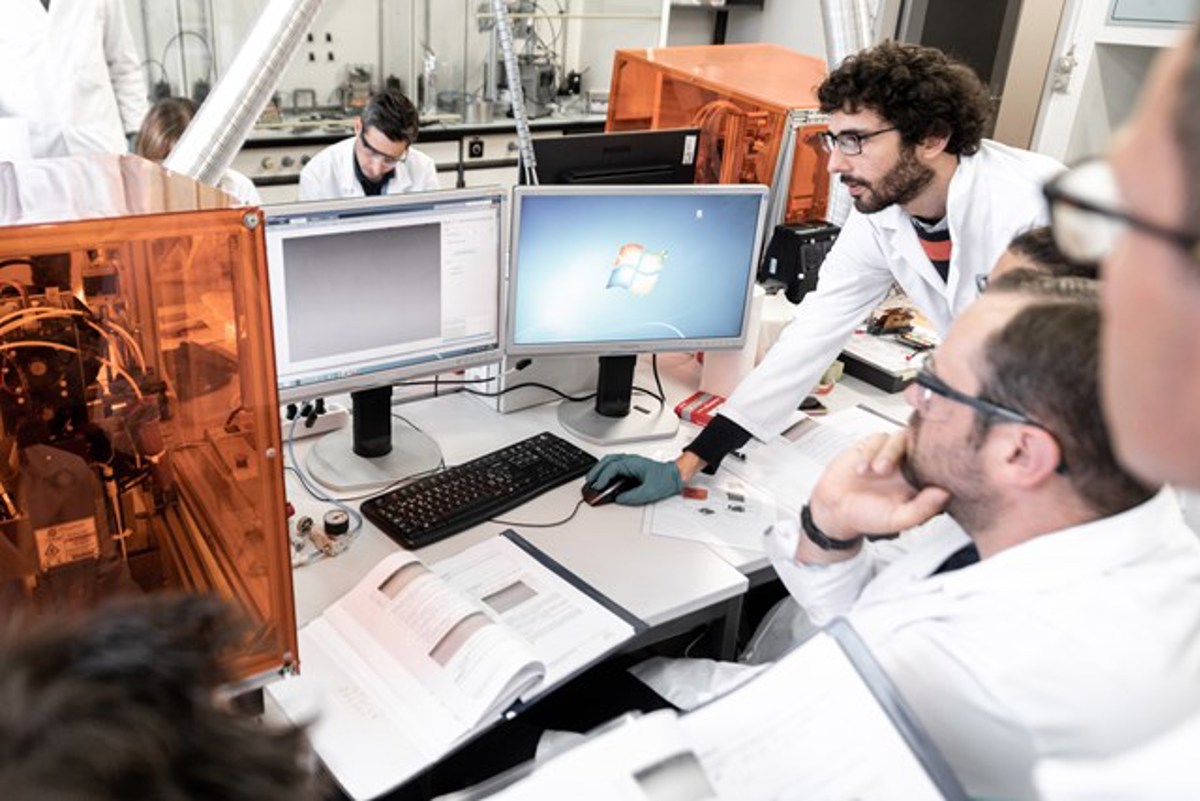Masterclass on Inkjet Rheology


This course covers all aspects of rheology relevant to inkjet printing and at timescales relevant to inkjet printing. We discuss shear (low, mid and high), high frequency, and extensional rheology. We also look at the influence of ink components on ink rheology and its influence on jetting behavior. We explore ways to optimise the rheological properties of inks to control misting, satellites, and achieve reliable jetting.

Entry requirement
The course is open to all participants who have:
- completed the Foundation course at iPrint and/or
- basic understanding of rheology
Course details
English (speakers and collaborators also speak French and/or German)
CHF 2'100
Enrollment takes effect upon payment of the course fee.
Participants are advised not to make any bookings (accommodation, flights) until the course is confirmed – at least four weeks before the start date.
Background
Rheology is the study of the deformation and flow of matter under the influence of an applied stress/strain. Flow/deformation behavior of complex fluids like ink cannot be simply described by classical fluid mechanics or elasticity, which is why they are termed non-Newtonian fluids. Recent innovative ideas and technological breakthroughs in printhead design and ink formulation have extended inkjet technology to newly emerging markets and applications, such as display fabrication, control-release drug delivery, anti-counterfeit and 3D printing. A fundamental understanding of ink chemistry, formulations, and the influence of individual components and ink as a whole on dynamic flow behavior in-channel, in the nozzle, in-flight and on-substrate during printing is vital to adequately control print quality (drop ejection characteristic, reliability) and to increase the capabilities of inkjet technology.
Advanced Rheology
The Advanced Rheology course is aimed at ink formulators and chemists. The course provides insight into the (i) flow behavior of Newtonian and non-Newtonian fluids and (ii) rheometry tools to characterize high shear as well as extensional and high frequency rheology of low viscosity fluids. In this Masterclass we do an overview of inkjet inks, and how and where individual ink components influence jetting behavior during printing.
Physical properties alone are no guide to ink performance. Small variations in ink viscoelasticity influence upstream flow dynamics and jet break-up mechanisms downstream. We will present techniquesfor quantifying the complex fluid rheology of low viscosity inkjet inks at conditions similar to those during printing.These techniques have not been possible until recently.
We will discuss and demonstrate that jetting behaviour of weak viscoelastic inkjet fluids during printing can be linked with appropriate measurement of inkjet fluid rheology. Bulk viscosity alone is no guide to print performance. The size of the main drop, ligament length and jetting speed can be correlated with other rheological properties. These techniques, used prior to filling print heads, would provide useful tools to differentiate between identical inks that have similar bulk properties but show different jetting behaviour during printing. This is often the case, as ink batch variations may result in different jetting behavior and issues with ink printability. These tools will aid ink formulators to quickly shortlist their inks.
Dr. Tri Tuladhar
The Masterclass is led by Dr. Tri Tuladhar. A Chemical Engineering graduate from RMIT, Australia, and a PhD in Chemical Engineering from the University of Cambridge, UK,Tri Tuladhar has over 20 years’ experience in R&D in academia and the industry. Over the last 15 years, he has focused on complex rheology of inkjet printing ink and developed novel techniques to link fluid rheology to jetting behavior.
Participants can also request personalized training on specific topics. iPrint is flexible and happy to support your inkjet education.